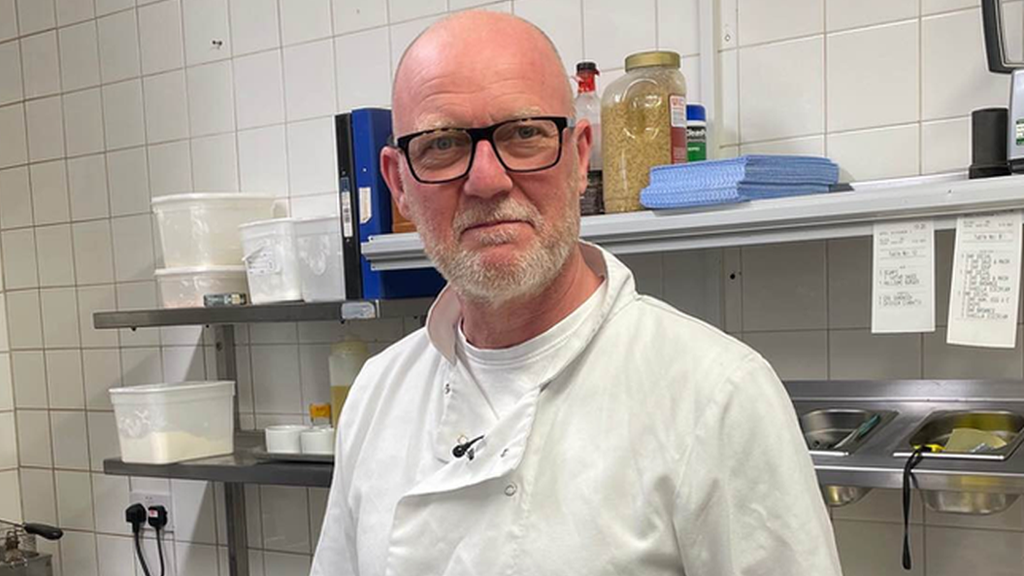The Debenham Lion has reopened after being closed 25 years
- Published
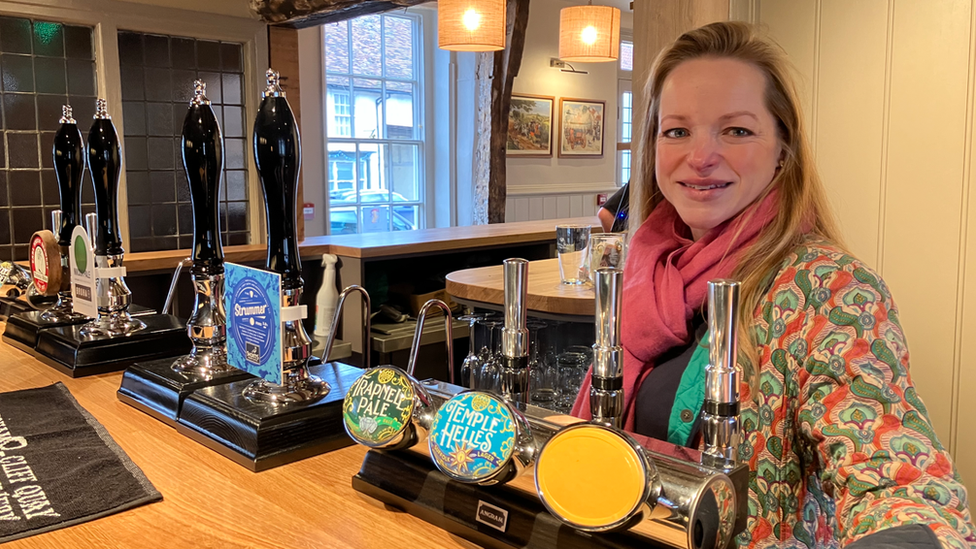
Owner Leonora Faggionato wants the pub to become a community space once again
A village pub dating back to the 1400s has reopened after being closed for 25 years.
The Red Lion in Debenham, Suffolk, which closed in 1998, had been used as a house until recently.
Scores of customers arrived on its reopening day, many of them reminiscing about drinking at the venue in the 1980s.
Owner Leonora Faggionato said she was keen to keep the pub's "medieval soul" during renovations.
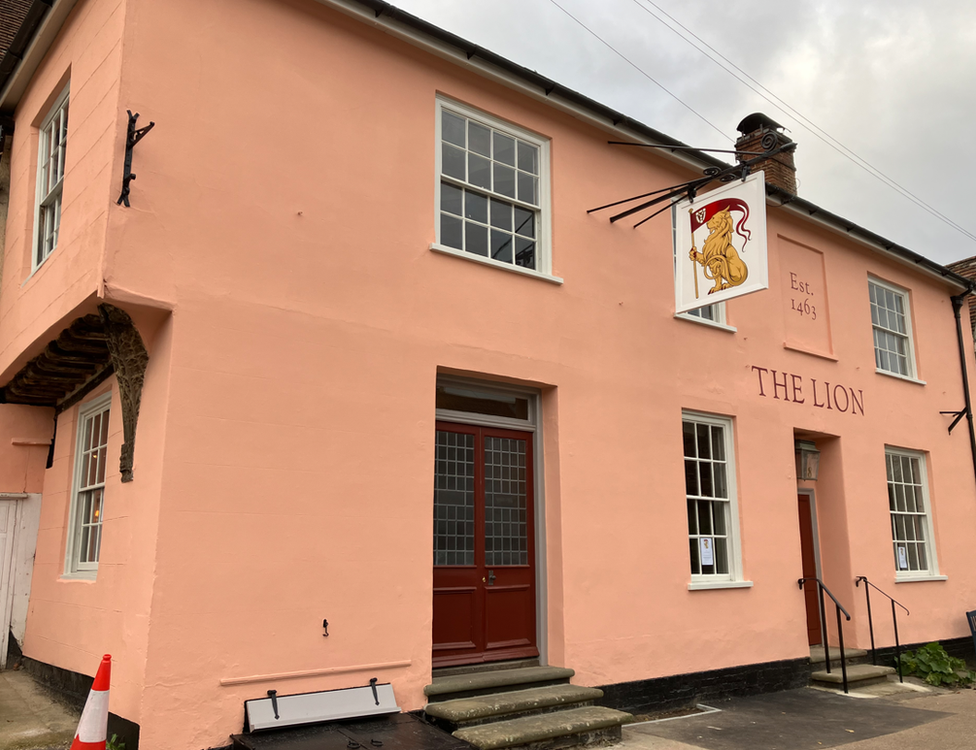
Punters were excited to take a look inside the pub once the renovations had been completed
Before the renovations started last spring, a number of pop-up events were held for local residents, including for the Queen's Platinum Jubilee in 2022.
Among the tales told at Friday's opening was a ghost story about three 17th Century men reputed to sit by the fireplace with their ales.
Mrs Faggionato wants the High Street pub, now rebranded as The Debenham Lion, to become a community space once again.
She said people were excited to look around after its renovation and she felt the building had regained its purpose after 25 years.
It had also kept its "medieval soul while keeping in line with the 21st Century", she said.
However, she admitted opening a business during the cost-of-living crisis had brought some challenges.
"You can't ignore that pubs are closing all over the place and that can be a discouraging way to think about it," she said.
"But we have had so much support from the community and there is a black hole for a good family pub where we are... but if someone told me they were opening a pub, I would think they were crazy."
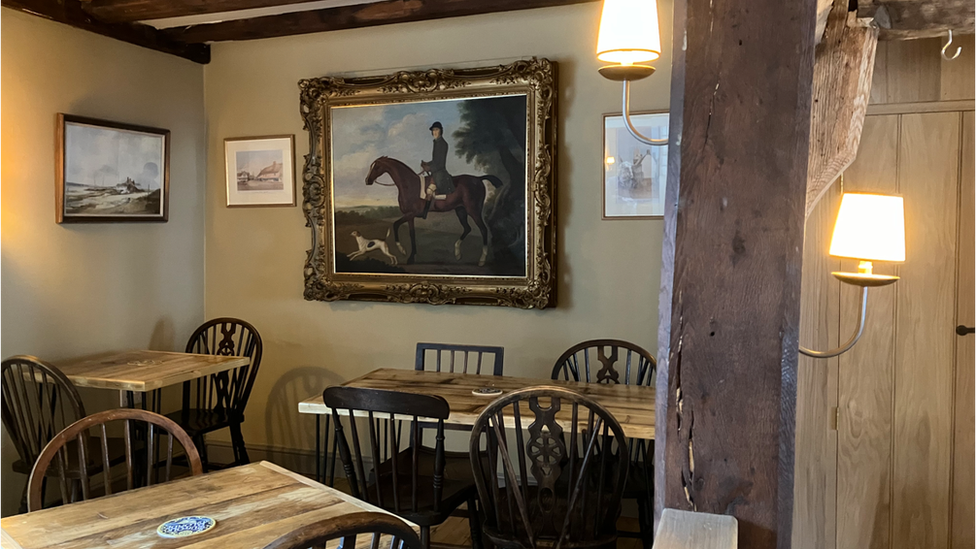
The pub has been refurbished in traditional style
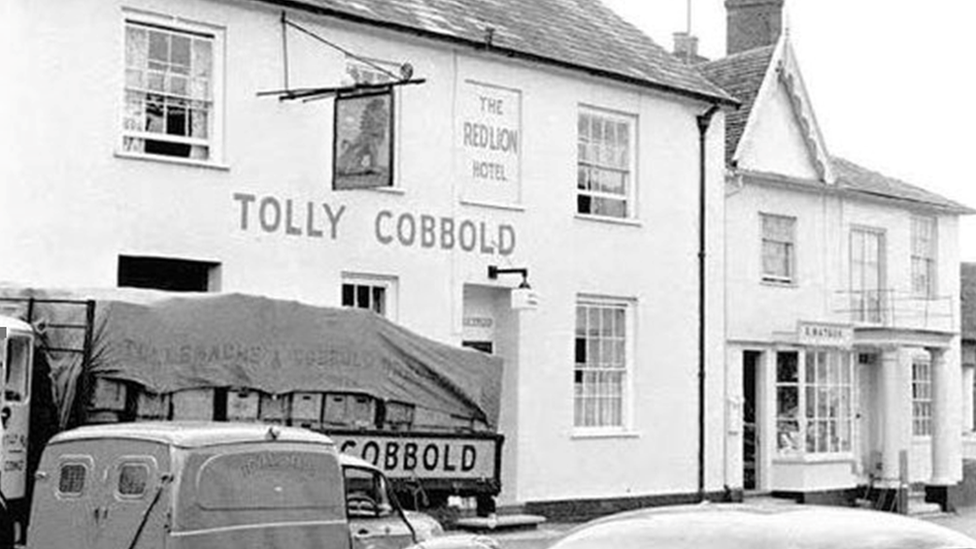
The Red Lion, now rebranded as The Debenham Lion, dates back to the 1400s
Despite this, she said pubs were important because they acted as a social spaces where people could go, even on their own, without being judged.
"They don't need to be a place where you need to get booze - we all know people are drinking less and less," she said.
"The only way for a pub to survive, especially in a rural community - your pub has to be the natural meeting point for everything."

Follow East of England news on Facebook, external, Instagram, external and X, external. Got a story? Email eastofenglandnews@bbc.co.uk or WhatsApp 0800 169 1830
Related topics
- Published21 November 2023
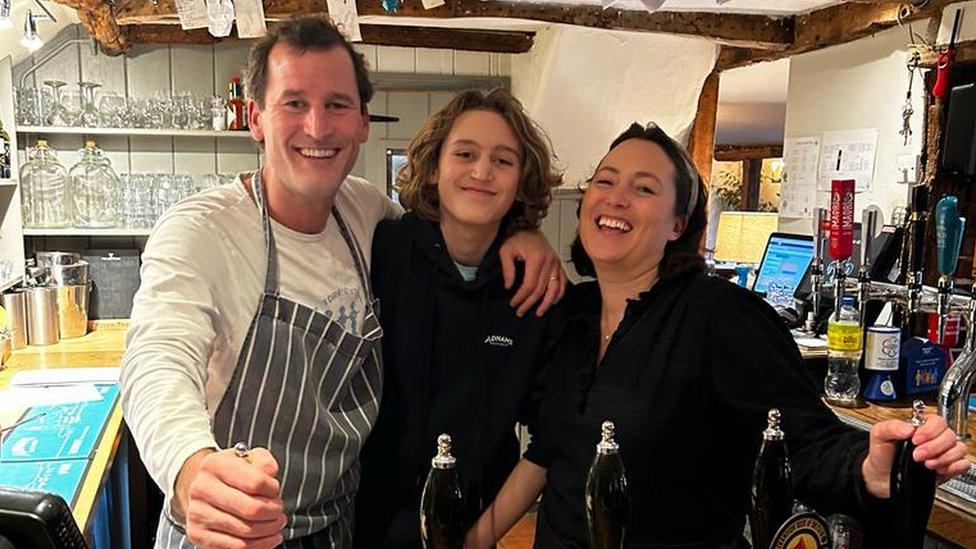
- Published31 July 2023
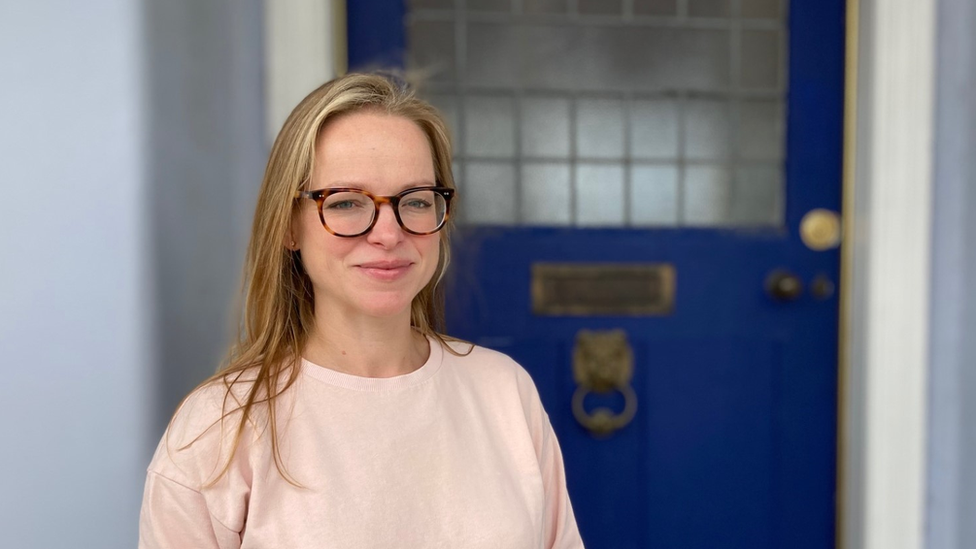
- Published8 March 2023
